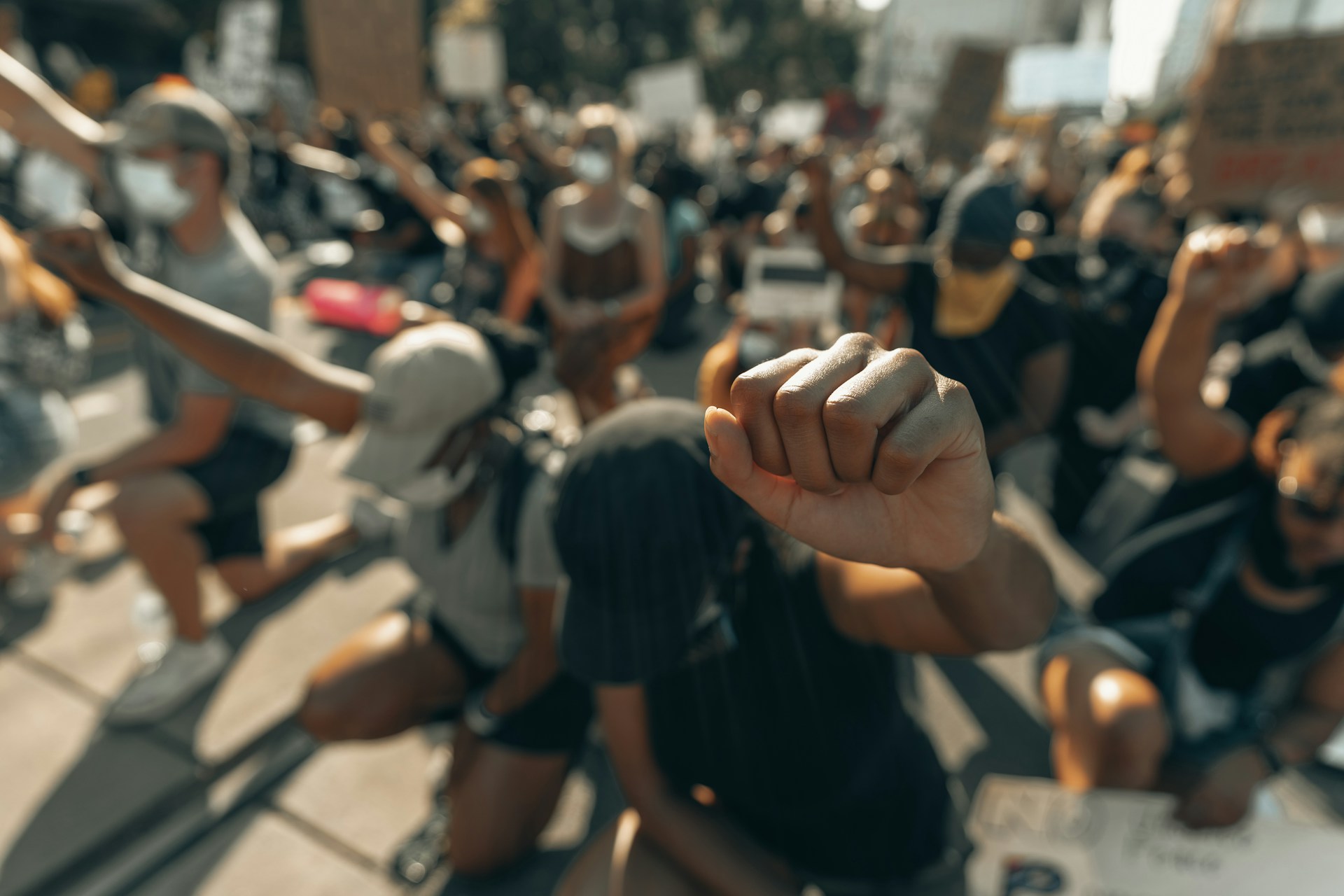Abstract
This research examines the constitutionality of presidential inaction, creates an evidence-based theory, and strengthens its claims using previous legal and constitutional texts and academic research. A president is often viewed as a higher being than the average citizen of a nation since they are exempt from getting sued for a majority of potential reasons. This superior status may cause them to take undue advantage of their power, through action or inaction. This paper focuses solely on inaction and provides evidence to prove its inadmissibility. Typically, research papers related to this topic discuss how presidential inaction can and is excused occasionally, but this research paper provides a concrete argument about how it is strictly unconstitutional.
I. Executive Summary
When the President purposefully abandons their duty to enforce laws passed by the Legislative branch of the government, they are single-handedly making national policies, with no inter branch cooperation or communication, or approval through checks and balances, undermining the power the constitution holds. This is called ‘Presidential Inaction.’ The Constitution addresses how a President could be removed from office under ‘high crimes’ through the impeachment process. Still, it does not elaborate on prosecution in court and the Supreme Court has also not released a verdict on the same topic. And while a former president can be convicted for something he did while in office, it is unjust for him not to be held accountable while committing offenses. The author of this article believes that presidential inaction, especially in policymaking, is unconstitutional.
II. Overview
This author will be collecting qualitative research using historically relevant texts like the Federalist Papers and the Constitution, as well as previous research papers. Legal professionals, such as law professors and constitutional law attorneys may also be interviewed regarding the specifics of the data already available. Old cases that examine presidential limitations (Franklin v Massachusetts) and acts like the Administrative Procedure Act might be analyzed and incorporated to provide accurate and relevant evidence.
Since strict limitations have not yet been imposed on the governance by a President, it may be used to the advantage of the Executive branch and undermine the constitutional hierarchy. The author expects to conclude how inaction could be illegal with a strong legal foundation.
A. Pointed Summary
- The principle of separation of powers in the U.S. Constitution establishes a system of checks and balances among the legislative, executive, and judicial branches of government.
- The Constitution grants the President certain powers and responsibilities, including the duty to faithfully execute the laws of the land.
- Presidential inaction, or the failure to carry out this duty, can lead to a violation of the Constitution's separation of powers.
- When the President fails to enforce a law or fulfill a constitutional duty, it can undermine the authority of the legislative branch and threaten the democratic process.
- Examples of presidential inaction that may be unconstitutional include failure to enforce environmental regulations, neglecting to address voting rights issues, and refusal to implement laws passed by Congress.
- Remedies for presidential inaction may include legal challenges, congressional oversight and investigation, and impeachment proceedings.
- It is important for policymakers and citizens to be vigilant in monitoring and addressing cases of presidential inaction to uphold the Constitution and maintain the integrity of our democratic system.
B. Relevance
This research is extremely relevant to all citizens of the US as it informs them about a loophole in the laws that the government might be taking advantage of and urges them to take action against it. A prime example of this would be the presidency of Donald Trump. Although a widely controversial topic, Democrats have argued that they witnessed an unacceptable response from law enforcement, emblematic of how police officers treat white supremacists with gentleness, a contrast to the brutality they continue to show BIPOC and LGBTQ+ activists demanding justice. There was deliberate inaction from the administration, which delayed the dispatch of the National Guard and prevented them from restoring order in time. This example of inaction resulted in multiple injuries and may have bigger consequences in the future if not acted upon.
A. Current Stances
James Madison, 4th US President, father of the Constitution, and co-author of the Federalist Papers, designed the Constitution with the separation of powers in mind. It was meant to ensure no powers, especially executive, ran amok or became tyrannical.
“The legislative, executive, and judiciary departments ought to be separate and distinct; so that neither exercise power properly belonging to the other; nor shall any person exercise the powers of more than one of them at the same time,” penned Madison in the Federalist Paper No. 47.
Madison clearly stated how he wished that the three branches of the government were contained within their powers. There was no need for one branch that governed alone. When a president chooses to administer policies through inaction, the president is overriding the power of the legislative branch since it is the proper procedure for the president to bring the policy they do not agree with in front of Congress to ensure a fair trial that determines whether the president may or may not enact a certain law. A president, however, may not simply ignore any law or rule that they are not fond of.
Looking at the larger picture, a President can not be sued for their misdeeds either. The Administrative Procedure Act rules the process by which federal agencies create and issue regulations and rules. It states that the “reviewing court shall compel agency action unlawfully withheld or unreasonably delayed and hold lawful and set aside agency actions found illegal…” Moreover, it mentions the right to withhold power from agencies that are more powerful than needed, acting contrary to human rights, disregarding legal procedures, or being unwarranted or unsupported.
Some forms of inaction can be permissible even if they defy the very core values of the structure of the Constitution and the Madisonian principles that are supposed to govern the country. These instances are only allowed because of loopholes in the law. For example, when President Obama announced DAPA (Deferred Action for Parents of Americans and Lawful Permanent Residents) it could not be declared unconstitutional because it was not expressed as an executive action.
Peter L Strauss, an American lawyer and author, proposed that agencies could be a part of the executive branch but Congress could be allowed to determine the exact nature of each agency’s relationship with the executive. In this way, the president could function in an oversight role instead of an authoritarian one. By providing the president with a bystander role, not only are they involved in the ongoing processes, but they also do not have the discretion to interfere directly with the decisions of Congress.
B. Tried Policy
In the Franklin v Massachusetts case ruling in 1992, the court explicitly stated, “the President is not an ‘agency’ under APA and therefore is not subject to review under APA, although Presidency is subject to constitutional review.” Since the President does not comply with the APA, a less strict policy named the “non statutory review” governs presidential actions. Despite not having any requirements, it is useful, which is surprising since it does not have a formal structure.
For background information, the non-statutory review is a judicial review that is not governed by a specific law or statutory position. It is capable of raising doubts about whether or not specific actions are suitable to be judged by courts at all. Even though the President is exempt
from APA, the non-statutory review is a method of judicial supremacy over executive actions.
III. Policy Problem
A. Stakeholders
Quite obviously, the President would be one of the biggest stakeholders since it is their inaction that leads to this debate of constitutionality. Congress is another major party that would be affected by inactive executive power since this limits its ability to pass laws and effectively complete its duty. With the debate of the interpretation of the Constitution comes the Judiciary branch of the government. Presidential inaction greatly impacts the public since it impacts their rights and freedoms, directly or indirectly. Foreign governments may also have varying reactions to this latent form of government. Allies, such as Canada and the UK, may be concerned about the impact of the inaction on trade, diplomacy, and other crucial aspects that may harm their interests. Adversaries, such as Russia and China, may consider this lack of initiative a weakness and use it to further their agendas and use propaganda on an international level.
B. Risks of Indifference
The risks of indifference to the unconstitutionality of presidential inaction are significant and can have critical consequences for the functioning of a democratic society. Firstly, when a President fails to act on a matter that is within their constitutional authority, it creates a power vacuum that allows other government officials or entities to assume authority and take actions that are not in the best interests of the public. This leads to a breakdown in the rule of law and undermines the democratic principles that are the foundation of a stable society. Secondly, when the courts or other oversight mechanisms fail to hold a President accountable for their inaction, it sets a dangerous precedent that undermines the checks and balances that are essential to the functioning of a democratic system. This encourages future Presidents to disregard their constitutional duties and responsibilities, knowing that they will not face any consequences for their actions. Finally, failing to hold a President accountable for their inaction can erode public trust in government institutions and the rule of law. This can lead to a loss of faith in the democratic process and may even result in civil unrest or other forms of social instability and rebellion. In short, the risks of indifference to the unconstitutionality of presidential inaction are significant and can have far-reaching consequences for the health and well-being of our society. We must remain vigilant in upholding the rule of law and ensuring that our elected officials are held accountable for their actions or inactions.
C. Nonpartisan Reasoning
Presidential inaction is not an issue that targets a specific party or wing of the political spectrum; it affects the government as a whole. The basis of the successful legal system of the United States is our constitution, established in 1787. Since then, legality and constitutionality have been synonymous and have helped build the foundations of justice in our nation. However, presidential inaction undermines everything that our Constitution and founding principles stand for. The negligence of duty is almost as heinous as an outright refusal to obey a law. Not only are primary figures of authority refusing to fulfill responsibilities, but they are influencing thousands of individuals that look up to them to do the same. By diminishing the national administrative laws, unconstitutional presidential inaction is a non-partisan issue and must be treated with importance and impartiality by Democrats and Republicans alike.
IV. Policy Options
Several policy options could potentially be implemented to prevent or address presidential inaction. Here are a few examples:
1. Legislative Action: One option would be for Congress to pass legislation that specifically mandates the president to take certain actions in a given situation. This could clarify the president's duties and responsibilities and provide clear guidance on what is expected of them.
2. Judicial Review: If a president's inaction is believed to be unconstitutional, the matter could be brought before the courts for judicial review. This could result in a court order compelling the president to take certain actions or enforce the constitutional duties and responsibilities of the president.
3. Executive Orders: A president could issue executive orders that require specific actions to be taken in a given situation. While these orders would only be binding during the term of the issuing presidents, they could help ensure timely and effective action on important issues.
4. Congressional Oversight: Congress could also exercise its oversight powers to hold the president accountable for inaction. This could involve holding hearings or investigations, requesting information, and demanding that the president take action.
V. Conclusions and Recommendations
Since strict limitations have not yet been imposed on the governance by a President, inaction may be used to the advantage of the Executive branch and undermine the constitutional hierarchy. The author concludes how inaction is illegal with a strong legal foundation and urges for stricter regulation of the responsibilities that are held by national figures of authority.
References
"Franklin v. Massachusetts | Case Brief for Law School | Lexis Nexis," accessed June 6, 2023, https://www.lexisnexis.com/community/casebrief/p/casebrief-franklin-v-massachusetts.
Chris Horan, "Judicial Review of Non-Statutory Executive Powers," Federal Law Review 31, no. 3 (2003), accessed June 6, 2023, http://classic.austlii.edu.au/au/journals/FedLawRw/2003/22.html.
"Non statutory Review of Federal Administrative Action: The Need for Statutory Reform of Sovereign Immunity, Subject Matter Jurisdiction, and Parties Defendant," accessed June 6, 2023, https://scholarship.law.cornell.edu/cgi/viewcontent.cgi?article=2347&context=facpub.
Jonathan R. Siegel, "Suing the President: Non-Statutory Review Revisited," Columbia Law Review 97, no. 6 (Oct. 1997), pp. 1612-1709, accessed June 6, 2023, https://www.jstor.org/stable/1123388?read-now=1&seq=9​
"Presidential Inaction and the Constitutional Basis for Executive Non enforcement Discretion," accessed June 6, 2023, https://scholarship.law.upenn.edu/cgi/viewcontent.cgi?article=1611&context=jcl.
"Policing Executive Teamwork: Rescuing the APA from Presidential Administration," accessed June 6, 2023, https://scholarship.law.missouri.edu/cgi/viewcontent.cgi?article=4417&context=mlr.



.jpg)
.jpg)
.jpg)
.jpg)






.svg)



.svg)



